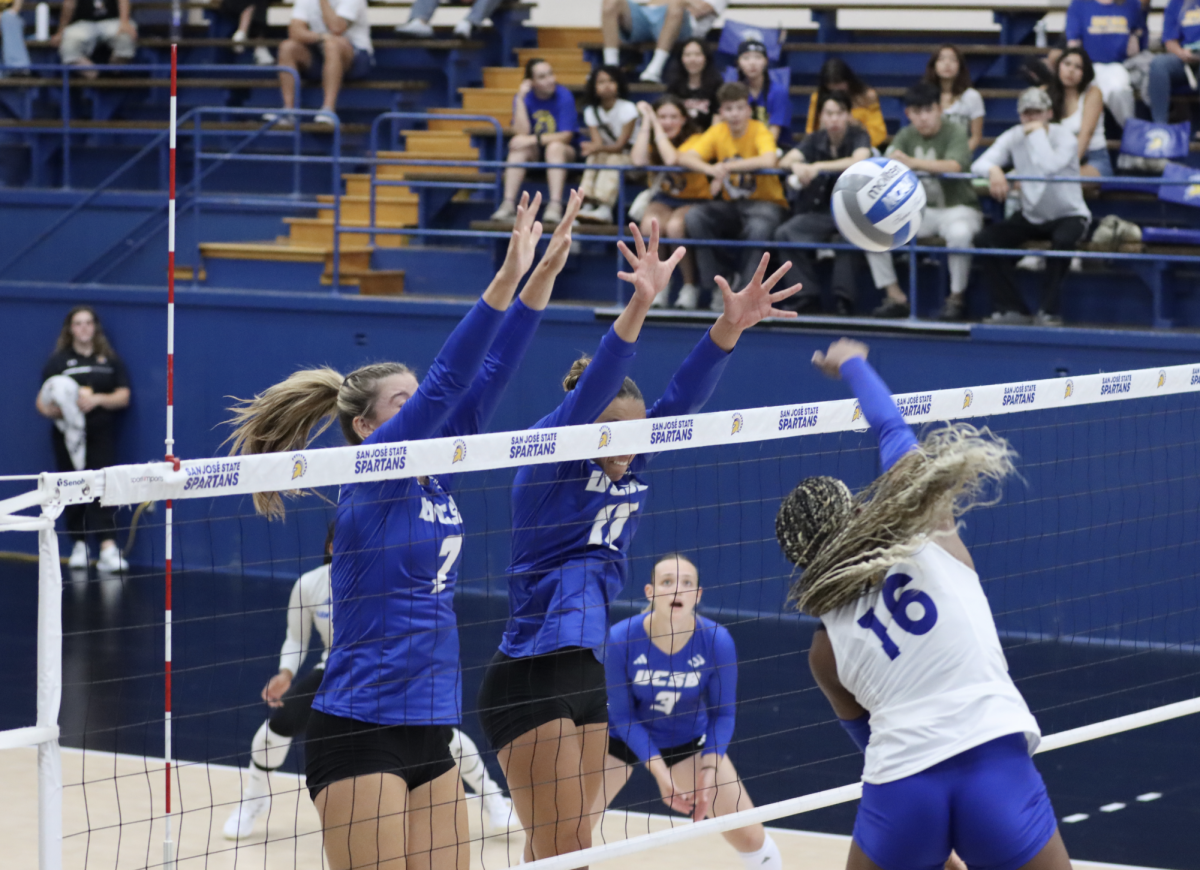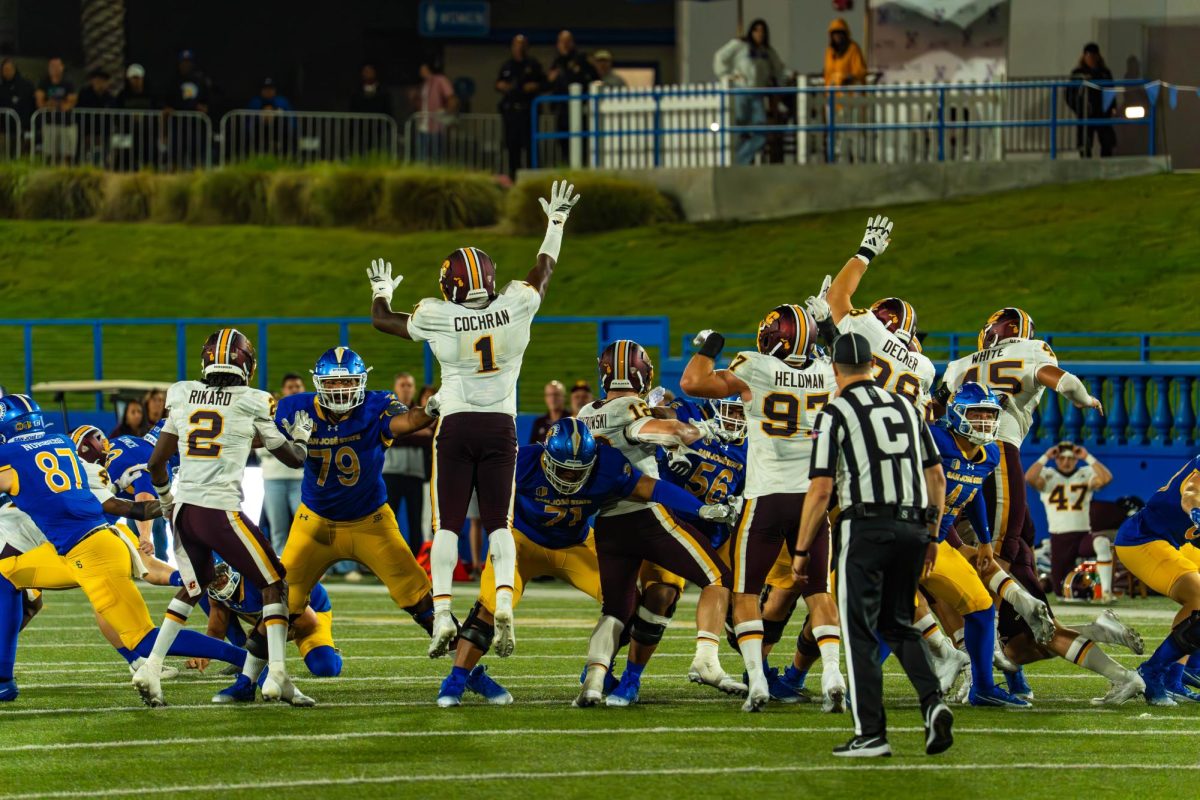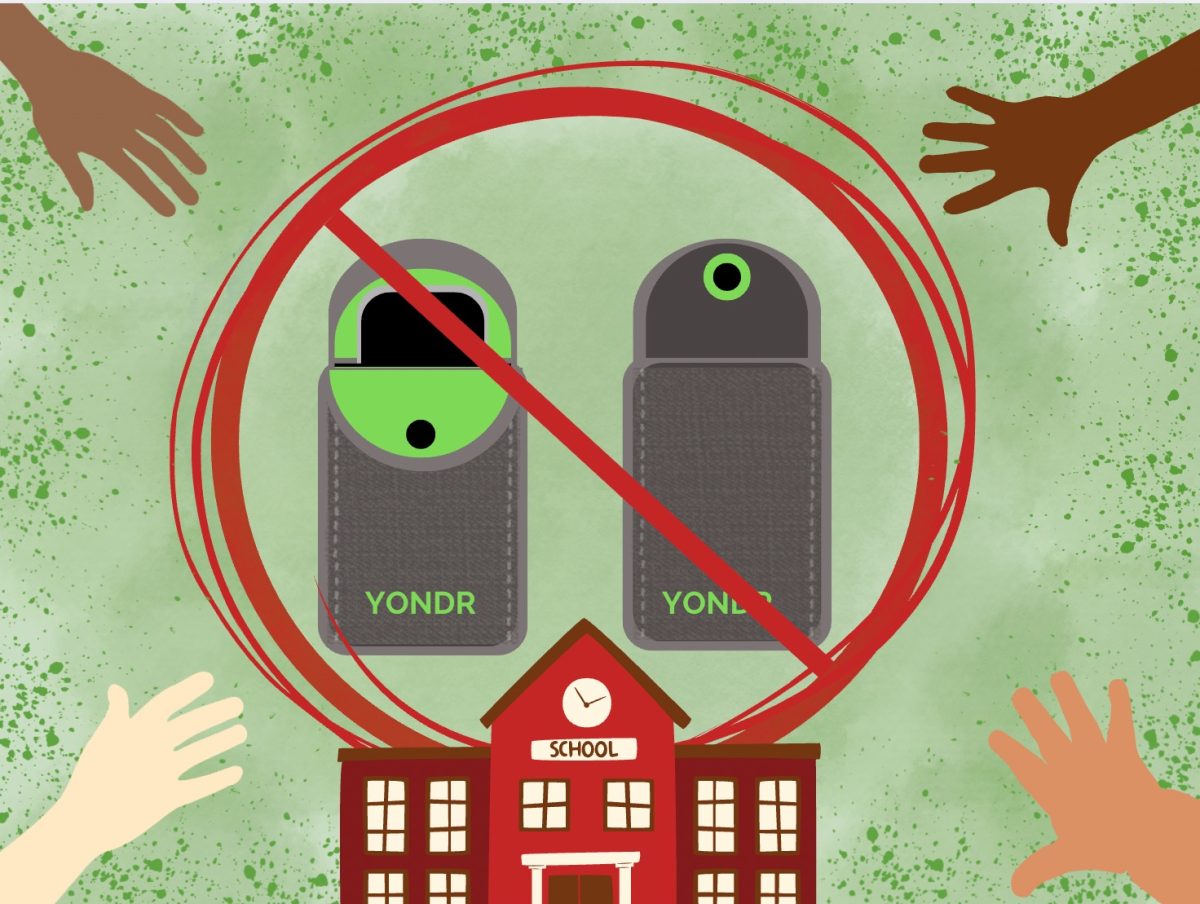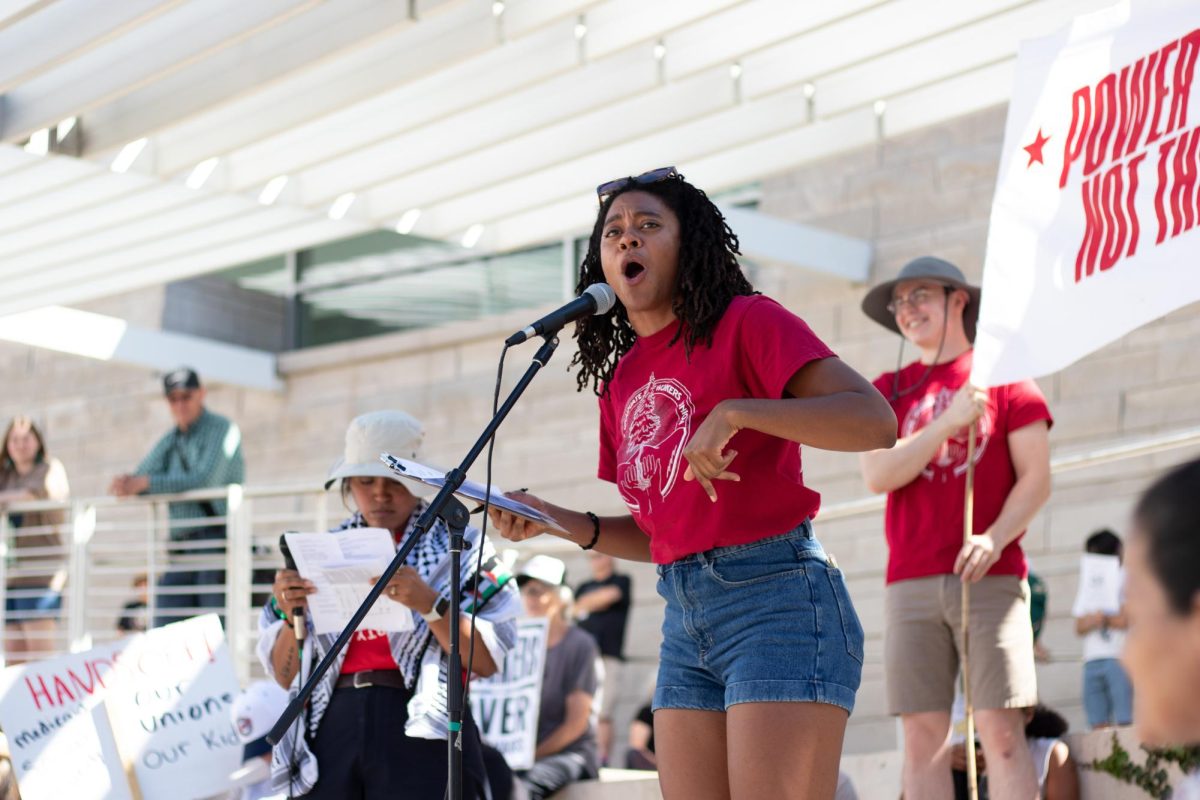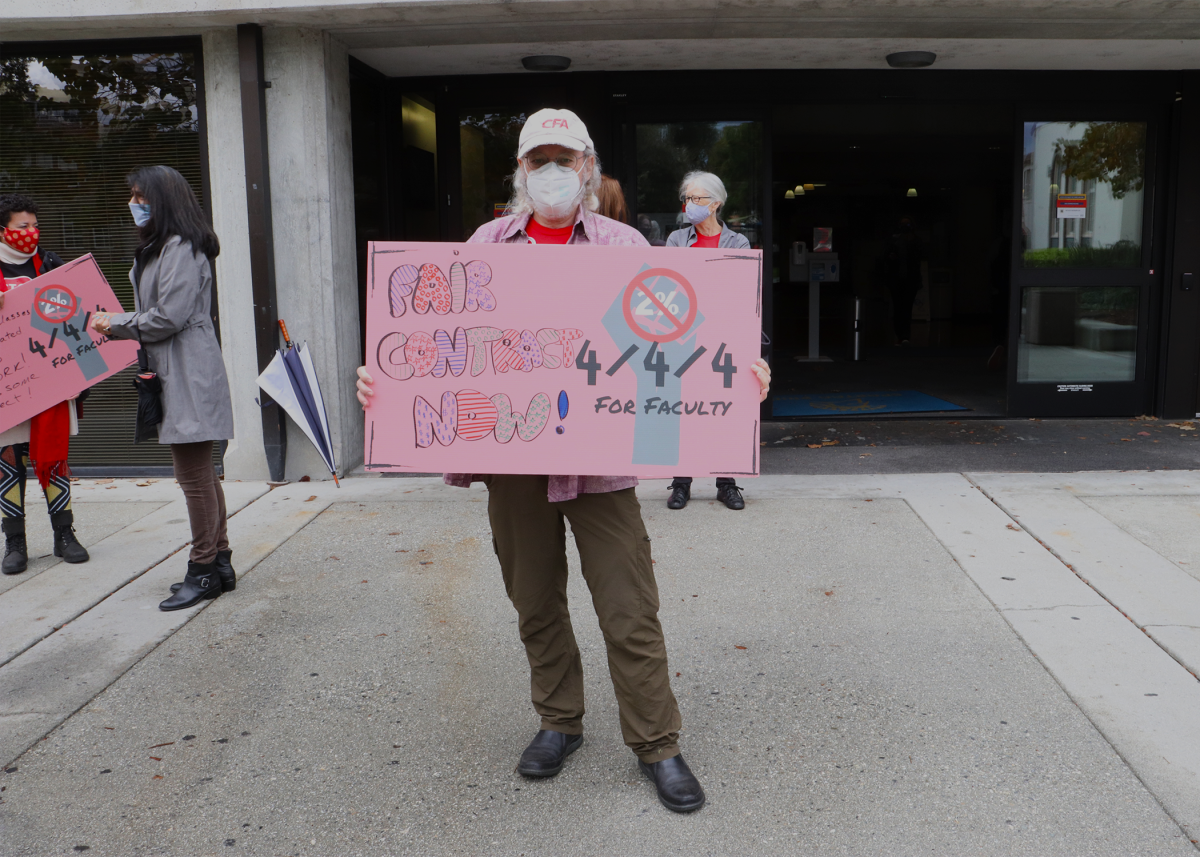San Jose State faculty members gathered on campus to demand pay raises as the California State University Chancellor Joseph Castro met with stakeholders in Clark Hall Monday.
About 20 California Faculty Association (CFA) members attended the call to action in front of the academic building. CFA is a collective bargaining organization for 24,000 CSU tenure-track faculty, coaches, counselors, librarians and lecturers according to the SJSU CFA website.
Nikos Mourtos, aerospace engineering chair, professor and SJSU CFA chapter president, said the group is bargaining for a 4% retroactive raise for 2020 and a 4% wage increase for the year and 4% for 2022.
According to a Monday CFA news release, Castro only agreed to a 2% faculty raise for the 2021-22 year.
“We have lecturers who make [$50,000] or $60,000 a year working full time so a 2% [increase] would be an insulting pay raise which doesn’t keep up with inflation this year,” Mourtos said. “For example, inflation is about 5.5% so if you give us . . . 2% it doesn’t even cover this year’s inflation.”
The annual national inflation as of September 2021 is at a 13-year high at 5.4%, according to Trading Economics, a website that provides economic information from 196 countries.
Jonathan Karpf, an emeritus anthropology lecturer who’s been a CFA member since 1990 and currently serves as the union’s statewide retirement specialist, came with a protest sign during the rainy afternoon.
Karpf said in addition to raises, the union is asking for changes that will create a more stable workforce including three-year coaching appointments, as opposed to year-to-year appointments, and longer lecturer contracts.
He said CFA is requesting post-promotion increases for associate, full and tenured professors as well as lecturers who aren’t eligible for step raises.
He said step increases are 2.65% pay increases within the four respective lecturer and professor salary ranges.
The ranges include A, B, C and D lecturers and instructor, assistant professor, associate professor and professor, according to the SJSU 2019-20 salary schedule.
Mourtos said he’s unsure why Castro is hesitant to grant faculty a 12% increase over three years considering he agreed upon a 10% retroactive increase for CSU campus presidents.
“The California economy is doing well and we know they have the money because they’re offering a 10% pay raise to all 23 campus presidents that are retroactive to 2021,” Mourtos said. “So for some reason, they do not want to commit the money to giving raises to faculty who have worked very hard.”
Sabrina Pinnell, political science lecturer and CFA delegate to the South Bay Labor Council, said the 2% increase was disrespectful to instructors who went from in-person to online instruction without complaint.
“I am concerned that because faculty were not as visible on this campus, they think it’s easier to ignore us now, which is why we will have to raise our voices over this coming year,” Pinnell said. “Their treatment of us shows incredible disrespect and if they need to be reminded of this fact then so be it.”
The South Bay Labor Council represents 101 unions and more than 100,000 union members in Santa Clara and San Benito counties, according to its website.
Pinnell said she spoke with Castro in Clark Hall Monday during his campus visit.
She said while she hopes a strike doesn’t come to fruition, faculty members are prepared to fight for fair pay.
“I hope we can avoid [a strike] but as I said, if they think that because faculty have not been on this campus that we will be quiet, they are mistaken,” Pinnell said.
Karpf said while he doesn’t think a strike will occur, one-day strikes for the retraction of contract takebacks at CSU East Bay and CSU Dominguez Hills in 2012 prompted former CSU Chancellor Charles Reed to oblige CFA requests.
Karpf said while Castro was diplomatic during his meeting with CFA members Monday, he hopes the Labor and Employee Relations Department negotiates with the union in good faith.
The Labor and Employee Relations Department manages collective bargaining, grievance arbitration and campus labor relations within the California State University system, according to its website.
“Hopefully as chancellor, he directs his bargaining team if he really is interested in settling because he told us that he hopes that mediation will reach a settlement,” Karpf said. “[I] told him that . . . he has the power to tell [the department] to make counter proposals when the union bargaining team makes proposals.”
He also said while the union’s demands are to serve faculty, the bargaining is also for students.
“It’s important that students support their faculty because the faculty working conditions really are student learning conditions,” Karpf said. “If we’re underpaid, if we’re not respected, it translates down to instruction . . . Again, none of us want to strike and hopefully we won’t have to but if we do, we hope the students stand beside us.”







